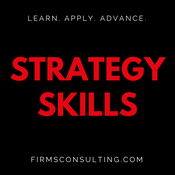Ashley Herd, former Head of HR North America at McKinsey, joins this episode to discuss what effective leadership looks like in practice, especially in environments defined by speed, pressure, and increasing expectations around AI.
Drawing on her experience training more than 250,000 managers, she introduces a simple but rigorous framework: pause, consider, act. In fast-moving organizations, leaders often default to speed over reflection. Herd argues that the brief pause before responding to a mistake, delivering feedback, or making a decision materially changes outcomes. It allows leaders to ask: What result am I trying to achieve? How would I want to be treated in this situation? What will the ripple effect of this action be?
Several practical insights stand out:
First, performance feedback remains one of the most persistent leadership failures. The issue is not usually saying the wrong thing, but saying nothing at all. Delayed or avoided feedback creates confusion, resentment, and surprises in annual reviews. Timely, specific recognition is equally important; a simple acknowledgment can shape engagement far beyond the moment.
Second, leadership style often oscillates between two extremes. Herd describes "tight jeans" leadership as micromanagement that restricts autonomy, and "oversized sweatpants" leadership as excessive hands-off behavior that leaves teams without direction. The effective middle ground is structured autonomy: clear expectations combined with room to operate.
Third, leaders underestimate the degree to which they influence their teams' well-being. Research shows a manager's effect on employee health rivals that of a spouse. Everyday behaviors whether following up, acknowledging effort, or setting realistic expectations, have consequences that extend beyond the workplace.
Fourth, organizations face a growing gap between executive narratives about AI and what teams are actually doing. Leaders often declare proficiency while employees experiment quietly, sometimes without clarity on what is expected, allowed, or rewarded. Clear standards around AI usage, what good looks like, what is permitted, and how it will be evaluated, are now a management responsibility, not a technical one.
Finally, Herd emphasizes upstream problem solving. Instead of repeatedly "cleaning up" issues after they escalate, leaders should invest in conversations, manager training, and clear norms that prevent recurring failures. This requires time, but it reduces long-term friction.
For senior leaders, the message is direct: results and humanity are not opposing goals. Deliberate communication, consistent one-on-ones, and realistic workload expectations are operational disciplines, not soft considerations. For managers at any level, the framework is simple but demanding. Pause before reacting, consider the broader impact, then act with clarity.
Get Ashley's book, The Manager Method, here: https://www.managermethod.com/book
Claim your free gift:
Free gift #1
McKinsey & BCG winning resume
www.FIRMSconsulting.com/resumePDF
Free gift #2
Breakthrough Decisions Guide with 25 AI Prompts
www.FIRMSconsulting.com/decisions
Free gift #3
Five Reasons Why People Ignore Somebody
www.FIRMSconsulting.com/owntheroom
Free gift #4
Access episode 1 from Build a Consulting Firm, Level 1
www.FIRMSconsulting.com/build
Free gift #5
The Overall Approach used in well-managed strategy studies
www.FIRMSconsulting.com/OverallApproach
Free gift #6
Get a copy of Nine Leaders in Action, a book we co-authored with some of our clients:
www.FIRMSconsulting.com/gift



